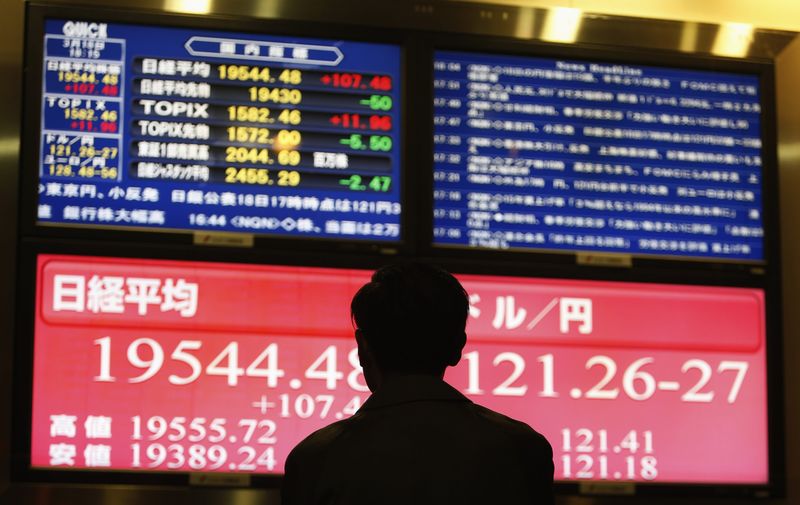Select Language

Most Asian stock markets advanced on Tuesday, led by gains in automakers after the U.S. moved to soften the impact of auto tariffs, while mainland Chinese stocks ticked down as Beijing held off from announcing fresh stimulus measures.
Japanese markets were closed for a public holiday, leading to thin trading volumes in Asia.
Major U.S stock indexes eked out marginal gains on Monday, while futures tied to these benchmark indexes edged higher in Asian trading on Tuesday.
Automakers gain on Trump’s tariff reprieve; BOJ policy meeting looms
President Donald Trump’s administration on Tuesday said Washington will soften the impact of its automotive tariffs by easing some duties imposed on foreign parts in domestically manufactured cars.
A Wall Street Journal article, which first reported the move, stated that the adjustment means automakers paying Trump’s auto tariffs will be exempt from additional duties, such as on steel and aluminium.
Hong Kong’s Hang Seng index rose 0.5%, with gains in Chinese automakers.
Hong Kong-listed NIO Inc (HK:9866) shares surged 5%, while Geely Automobile (HK:0175) jumped 2.5%.
South Korea’s KOSPI rose 0.8%, with Hyundai (OTC:HYMTF) Motor (KS:005380) climbing 1.7%.
Futures for India’s Nifty 50 added 0.3%.
Futures for Japan’s Nikkei 225, which comprises major auto stocks, gained 0.3%, indicating a rise after the markets return from a holiday.
Investors also awaited the Bank of Japan’s policy meeting starting on Wednesday, where the central bank is expected to keep interest rates unchanged on May 1 amid global uncertainty despite strong inflation prints.
Elsewhere, Australia’s S&P/ASX 200 climbed 0.9%, while Singapore’s Straits Times index rose 0.4%.
China stocks down despite easing trade tensions; Beijing holds off on additional stimulus
China’s Shanghai Composite edged 0.1% lower, while the Shanghai Shenzhen CSI 300 fell 0.2%.
This was despite signs of easing U.S.-China trade tensions.
U.S. Treasury Secretary Scott Bessent on Monday stated that all aspects of the U.S. government are in contact with China and that it is up to China to de-escalate the situation.
This came after Beijing earlier denied that any talks occurred.
Meanwhile, China’s policymakers vowed to support businesses and workers hit by steep U.S. tariffs and called for preparations for worst-case scenarios, state media reported Friday.
However, they did not announce any additional measures beyond what was revealed in their annual policy meeting in March.
China’s official and Caixin manufacturing activity data will both be released on Wednesday, providing a first look at how tariff actions impacted the manufacturing sector.

